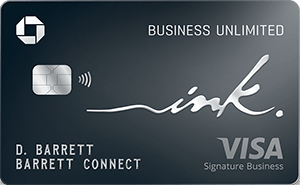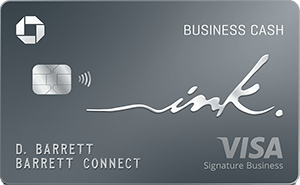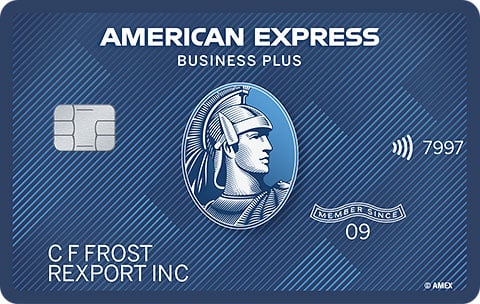How to Get and Build Business Credit

Many, or all, of the products featured on this page are from our advertising partners who compensate us when you take certain actions on our website or click to take an action on their website. However, this does not influence our evaluations. Our opinions are our own. Here is a list of our partners and here's how we make money.
Follow these steps
Establishing business credit for the first time can be fast and easy. You’ll need to register your business, apply online for an EIN and DUNS number — both are free — and then open a business credit card or trade line that reports to business credit bureaus.
But building your business credit — developing a history of on-time payments on multiple credit lines — takes patience. Here’s a step-by-step guide on how to establish business credit and build a strong credit profile over time.
1. Get an EIN
The first step to establishing business credit is to apply for an EIN, or employer identification number, with the IRS. This business tax ID is required by the IRS for many businesses — and you may need it to open a business bank account or apply for a business loan.
You may also need to register your business with your Secretary of State. This process will vary depending on your business structure and where you live. Some states do not require sole proprietors to register (though you may still need a local business license). Sole proprietors can also use their Social Security number to file taxes, rather than applying for an EIN.
2. Apply for a DUNS number
A DUNS number is a unique nine-digit number that businesses and potential creditors can use to look up your company’s credit profile and financial health before agreeing to do business with you. DUNS numbers are issued by Dun & Bradstreet, one of the most widely used commercial credit bureaus, and you can apply for a DUNS number for free via their website.
3. Open a business credit card
Opening a business credit card early can help you start building credit sooner. That means you’ll have a longer credit history — and potentially a stronger score — in the future.
Most small-business cards report activity to business credit bureaus, so on-time payments and low credit utilization (less than 30% of your available credit) will help build your business credit score. Missed payments and delinquencies, on the other hand, can negatively impact both your business and personal credit scores.
If you have good or excellent personal credit (a FICO score of 690 or above), you’ll have lots of business credit card options. If not, you can consider secured business credit cards or corporate cards (if your business is incorporated) — or focus on establishing trade lines.
4. Establish trade lines
Suppliers often extend trade credit, which allows you to pay several days or weeks after you receive the inventory. When a supplier gives you 30 days to pay your invoice, this is known as a net-30 account.
This type of accounts-payable relationship can boost your business credit score — provided your supplier reports payments to a business credit bureau. If they don’t, you can list them as a trade reference on your account and Dun & Bradstreet will follow up to collect your trade data.
You can ask to set up trade lines with any small vendor, such as your water or office supplies distributor. Try to set up several; Dun & Bradstreet says its scoring model can consider up to 875 different vendors, for instance.
5. Pay creditors on time — or early
Payment history is the most important factor in determining your business credit score. Making debt repayments on time and in full will help you build a stronger business credit profile over time.
While on-time payments are good, early payment is even better. Dun & Bradstreet assigns better Paydex scores, its primary scoring model that evaluates a business’s payment history, to companies that pay early.
6. Avoid judgments and liens
Judgments, liens and bankruptcy filings in your business’s name all negatively impact your business credit score. Unpaid taxes or business debt can result in a lien, granting creditors a legal right to seize your property to satisfy the debt. And unpaid debt may eventually result in a court ruling — or judgment — against your business to collect the debt.
These negative marks on your business credit report can haunt you. Experian, for instance, keeps bankruptcies on business credit reports for nearly 10 years. Tax liens, judgments and collections can remain for almost seven years.
7. Monitor your business credit reports
Check your business credit score to ensure all trade lines are accounted for. Keep in mind that not all lenders report to business credit bureaus. Merchant cash advances typically don't, for instance.
If you spot any errors on your report, such as incorrect negative marks or misspelled addresses, report them to the respective business credit bureau.
NerdWallet rating 4.9 /5 | NerdWallet rating 4.6 /5 | NerdWallet rating 4.4 /5 |
Annual fee $0 | Annual fee $0 | Annual fee $0 |
Intro APR 0% intro APR on Purchases for 12 months | Intro APR 0% intro APR on Purchases for 12 months | Intro APR 0% intro APR on purchases for 12 months from the date of account opening |
Recommended credit score 690-850 (Good - Excellent) | Recommended credit score 690-850 (Good - Excellent) | Recommended credit score 690-850 (Good - Excellent) |
1.5%
Cashback$750
2%-5%
Cashback$2,000













